|
|
|
I. Spirituality: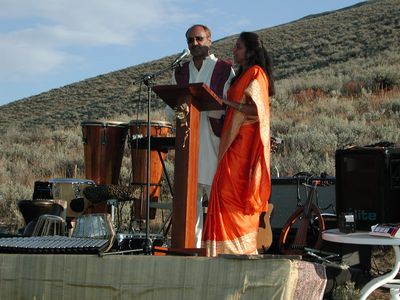
Spirituality and religion as well as the difference between them have been debated for eons. In frustration, some simply define religion and spirituality as follows: "Religion" is for people who don't want to go to hell, and "spirituality" is for people who have already been there. I believe that spirituality is a set of rules and regulations that work in an interdependent fellowship. I also believe that, from trial and error, laws and rules of morality that have stood the test of time, have become a code with which we work. I further believe that these laws were created by the "Spirit" and became part of inter-relationships in mankind, that our ancestors recorded these laws structured by a geographic and timely Buddha (or Krishna, Jesus, Mohammed etc.). No wonder all spiritual laws such as the Ten Commandments are the same and only have cultural and geographic twists. When a group of people follow these set of principles or rules (spirituality), it becomes their religion. II. God (A power greater than human): I have often wondered how it all began. Perhaps, something like this: An early human being, perhaps a caveman, comes into his den, and, looking at his mate, states in total frustration and ultimate defeat, "You know, Hon, all of those rain dances and chantings and jumping around, and all the sacrifices, have not changed a single thing. The sun comes out and then goes down, the rain comes whenever it pleases and not when I want it. The moon will not budge the least and I can't control the birds and the bees and the plants and the trees. I can't even control you. I must be powerless." But, someone else, the early man realizes, is controlling things and for the first time, the concept of a higher power or God may have been born, at least in the mind of this early human. Before I could fully utilize the power of God, I had to first recognize my own limitations; those things I could not control:

2) The results of the future 3) Other people, places and things Later, I realized that I could only control my actions in the present greatly simplifying my life and allowing me to relinquish to God the three aforementioned areas. III. Meditation: 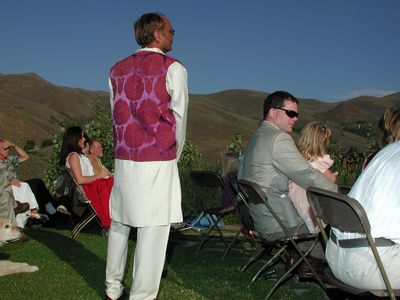
Since I an able to only control my actions in the present, I have learned that meditation is "being in the present". Restated, tomorrow is a dream, yesterday is dead and gone, today is a gift and that is why it is called "the Present". Meditation is to be inclusively focused and entirely aware. The opposite of this state is obsession, a place where the mind inclusively focused and entirely unaware. In meditation, we can use the key of knowledge to tap into the universal knowledge. Thus, all original creations are done in meditation and only knowledge comes through reading, learning and copying others. IV. Inner and Outer Values: My guru sent me a passage that I keep framed and in a prominent place: "Money may be the husk of many things, but not the kernel. It brings you food, but not appetite, Medicine, but not health, Acquaintances, but not friends, Servants, but not loyalty, Days of joy, but not peace and happiness" This short excerpt does not depict the value placed on money, food, medicine, acquaintances, servants and joy, as wrong; rather it directly helps remind me that without my inner values, they would be meaningless. Similarly, God, faith, serenity, and gratitude are inner values that are a by-product of spiritual actions.
V. Decision making: 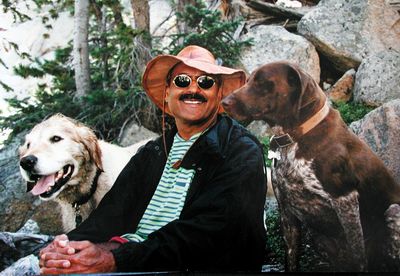
My experience has been that all decisions will be beneficial if they can meet three tests of spirituality: 1) Does everybody gain? 2) Is it fair to all (including the decision maker)? 3) Is it moral (subject to judgement as truth is subjective)? If the judgement in (c) is judicial, it will meet the test of time and have relative immortality. VI. Conversion/Behavior modification/Cultural change (Corporate or personal): A friend of mine is starting a consulting company and is offering "a general purpose system for optimizing human performance." Selected to sit on his Board of Advisors, he asks me if I could articulate what I use to evaluate performance. After meditation, here is what I believe to be the flow to human or corporate excellence in all endeavors: 1) Information (inventory, self searching etc.) 2) Analysis (discussion, research, etc.) 3) Knowledge (clarity, options, decision making) 4) Selection (clarity of purpose and goals) 5) Systems (plan to produce that goal) 6) Practice (work the plan with discipline) 7) Integration (working the plan with discipline and in time it will integrate itself into your life/corporation. 8) Wisdom (the conversion is complete and now the system is used intuitively by individuals/corporations). This flow can neither be short circuited nor can any stage be bypassed. My experience has shown that dysfunction (human or corporate) is caused either by addiction to one of the stages listed above or by ignorance to perceive being stuck (denial)in one of them.
VII. Prayer: 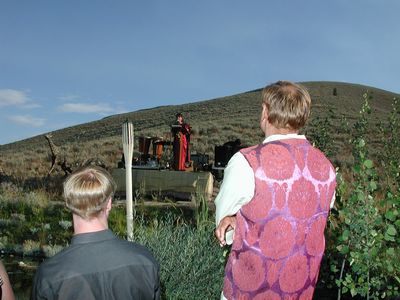
Even when I come up with a system to effect change, most of the time my humanness comes in the way of practicing the plan. To overcome this difficulty, I use the power of prayer. When my pride, greed, fear, anger, lust, gluttony and/or sloth, get in the way of doing what I believe to be right, or I lack the willpower or discipline to follow the plan, then through prayer, I ask for the strength from God. When I am sincere, in my plea, this strength has always been granted. VIII. The concept of God: I recently celebrated 25 years of continued sobriety....... 25 years ago, I was a hopeless alcoholic, dying from the disease. The theme of the celebration was labeled "In Gratitude". Here is why: For an alcoholic to not drink for 24 hours is a miracle because it cannot happen without intervention from an outside power that I choose to call "God". I have been so graced! I also had a chance to meditate on the journey of my life and found that this grace had come through people like you. My childhood and formative years were short circuited by a civil war that left us refugeed; I lived in a survival mode through that time. After my arrival to America, I lapsed into alcoholism, thus developing very few emotional, moral or spiritual values. The theme of Alcoholics Anonymous is "To thine own self be true". I came into AA in 1975 with two main learning disabilities: 1. I knew nothing about myself (referred to as denial), a form of insanity, and 2. a closed mind with a self-righteous attitude of "my way or the highway". This resulted in a lack of tolerance of what others believe and I became controlling and manipulative. AA gently (and with love) continues to help remove these disabilities, sometimes rather quickly, or, in my case, slowly. I began to understand that I was spiritually, emotionally and morally bankrupt. I developed a skill to differentiate excellence in fellow AA members as well as people around me. I have learned to integrate some of these qualities in me. I call this principle of integration "God's law for Pawan". It works as follows: Let's say I want to cure compulsive lying. Find a fellow who speaks the truth, start practicing what this fellow does deliberately (tell the truth even when lying is the perceived safest way out), and in God's time, I telling the truth will be intuitive. I call this "conversion". Conversion is a change from the inside; what is done deliberately will one day become intuitive. In this way, taking one day at a time, I continue to integrate other's excellent qualities into me. I would like to share two more examples to describe this conversion. a) Conversion from miserliness and thriftiness into abundance: Here is an example of using the system I have developed. My wife gave me $50 every morning. I had to spend this money on items normally considered useless by me (such as, coffee, larger tips). This rule also applied to areas of my everyday life where I was stingy or had to think too hard about spending trivial amounts. Any money left unspent had to be sent anonymously to a person or place of my disliking (an built-in incentive to excel in your goal). The next day I had to start the system over again. In God's time, I was given the gift of abundance, where I did intuitively what I was doing deliberately. The further miracle is that I incurred the wisdom to know where to appropriately be a spendthrift. b) Conversion from not liking children into loving them: Here is an example of using the system I have developed. I constantly carried candy and relatively healthy treats on my person. When I met children, with the permission of their parents, I forced myself to share these sweets and treats with them. In our travels in India, this was especially easy, and in God's time, I was given the gift of loving children. What I did deliberately, I began doing intuitively. IX. Leveraging our values and passing them on: Family document "Family Bill of Rights": Being an immigrant and having suffered from 10 years of alcoholism, our small family has its emotional and spiritual scars. For my 25th Continuous Sobriety Party, we were all gathered in one place. After a night of bonding, the emotional keyboards began being punched at random eventually resulting in a "bummer" for a few members. Due to timing, we all said good-byes in this terrible emotional state, and suddenly I had faith that God does not make mistakes. "In all this horse-do," I thought, "there has to be a pony." I started to meditate and had clarity of what our spirit, our God, was trying to tell us. Through meditation, the following document became the pony. I'd like to note that the wonderful thing about this document is (quoting friend, Michael McCafferty, who commented after reading it) that "You have created a beautiful thing. The flower is now a small bud, and I can see it growing into a lovely blossom. I especially like the idea of writing this down, and continuing to improve it with the dialogue which will surely follow. Lastly, you are building a template for what could be millions of others to build their own "Bill of Rights"." THE MEHRA, PIERCE, PEDERSEN BILL OF RIGHTS 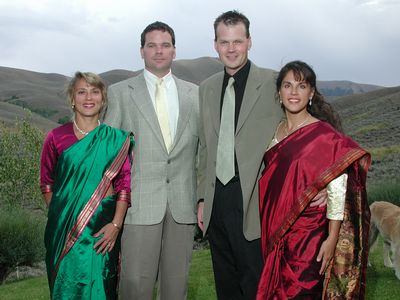
Dear children, I have been thinking about you all and the magic that God created for us last weekend and meditating on how to capitalize on God's will for us. I have come up with some ideas and would like to suggest a bill of rights for our family. While I recognize that we may not be able to have a 100% compliance rate, I want to go on record as making a commitment to try and follow along these lines. This is progress, not perfection, and I hope that you, too, find these suggestions palatable. 1. Rights and wrongs: There are no rights and wrongs in human affairs, just different points of view. We each have to respect the other's opinion and try not to take it personally. Let the opinion rest like a loose garment, so that we can detach from it or shed it with ease. This will enable us to be increasingly intimate with each other without taking offense to a different opinion from ours. (In other words, let's keep an open mind). 2. Negative traits and gossip: We are all human, automatically making us far from perfect. Every human, therefore, can be faulted. Dwelling on these faults or talking about the weakness of others is not only counter-productive, but it is gossip. Instead, let us concentrate on each others strengths and leave the negative inventory-taking to the each individual. In this way, we will empower each other, interdigitate around our weaknesses, and create a family synergy that is unbeatable. If we teamed up with our compensating skills, what a team we would make! When we talk about each others strengths, both to ourselves and to others, we empower each other to become more effective within and without our family. Remember, if you have to defend it, fight for it or compromise it, you are in counter-productive dysfunction. Let us strive to become so secure that we never have to do that. That is true intimacy and love. 3. Hostility: Hostility comes from lack of acceptance of what God created and it creates a heavy heart and a trudging step. It is a byproduct of not being able to accept what we cannot change. Let us all try to remove hostility which comes from doing God's business. By all means have a different opinion, but lets leave the judgement in the hands of a power better able to handle it. 4. Lightness: I feel that our family, as a whole, suffers from being too serious. When asked the time, I used to tell you how to build a watch. Now I tell you the concept of time, the theory of relativity and throw in the biography of Einstein for good measure. Recognize that while there is a time for such kind of talk, be aware not to do it. Remember that the longest journey starts with a single step in the right direction. While happiness in an inside job, it is enhanced (or in fact, created) by our actions. Taking ourselves in stride is the first step. Add to that, frolicking, whistling, dancing, shouting, smiling, and laughing and you will have it licked. Start doing more of that with each other. Let us make this into a dynamic document, so that, we can pass it on to our heirs, assignees, etc. Let us add to it if we come across a concept that is beneficial to our clan. Above all, let's call on each other when any one of us violate any of these RIGHTS. Love, Pawan K. Mehra Originating Founder
Founders of this Bill of Rights: 1. Pawan K. Mehra 2. Helen Pinto Mehra 3. Barbara Pressler (Optional) 4. Dawn Mehra-Pierce 5. Rob Pierce 6. Heather Mehra-Pedersen 7. Bruce Pedersen 8. Dustin Pierce 9. Kipling C.Pedersen 10. Rio Pedersen 11. Darby Pierce 12. Selkirk Pedersen
|
| spirituality | pawan@pawanmehra.com |
| website by humankind systems, inc. | |
